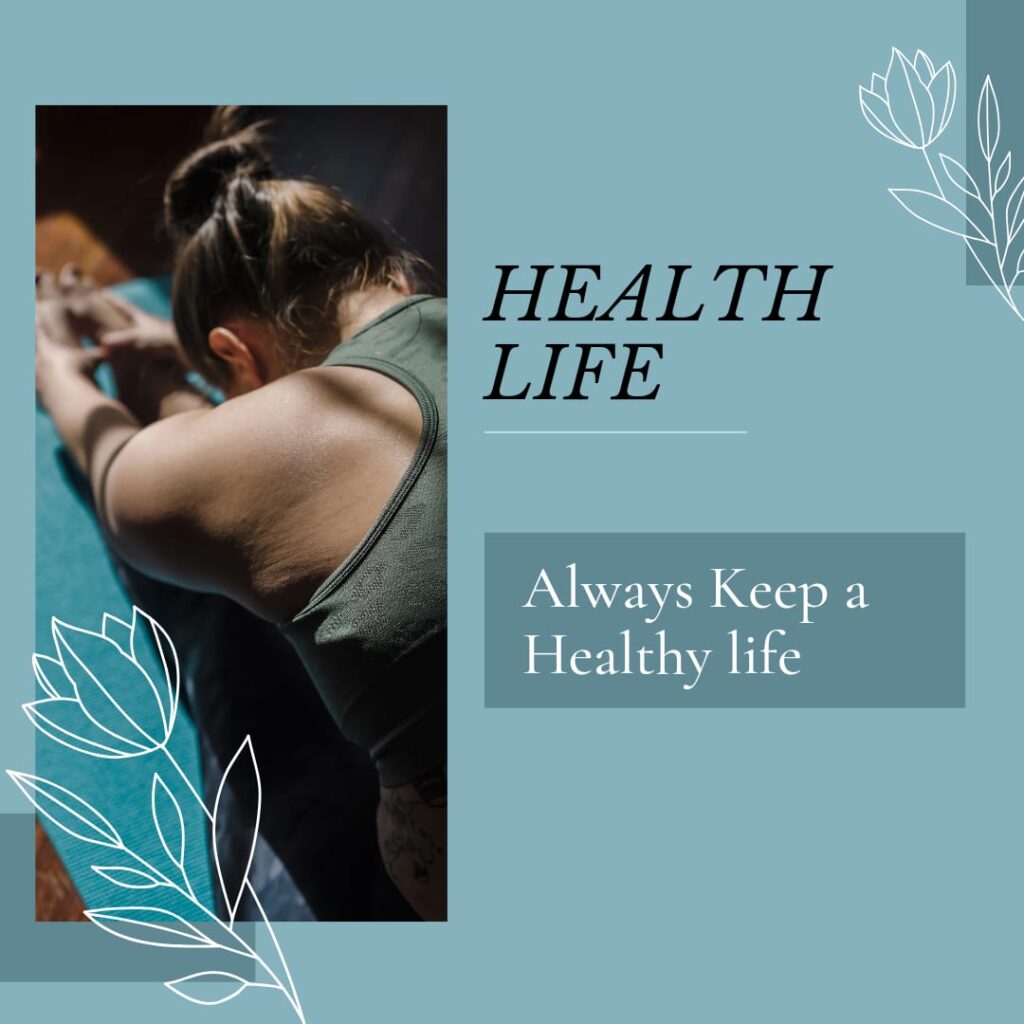How to Live a Healthy Life: 10 Proven Strategies
Living a healthy life is more than the absence of ailments; it’s about feeling good, being energetic, and enjoying each day to the fullest. By incorporating some of the most important habits into your daily schedule, you can definitely alter your physical and mental state for the better. The following are ten practical steps toward living a healthier and happier life.

- Eat a Balanced Diet
A balanced diet is the substratum for fueling the body, keeping off diseases, and a focused mind. Emphasize a wide range of foods:
- Macronutrient Intake: It is necessary to have an appropriate balance among carbohydrates, proteins, and fats. Carbohydrates provide energy, while proteins are vital for the repair of tissues; fats maintain brain functions.
- Micronutrients: These include foods whose components are vitamins and minerals. Foods similarly include fruits, vegetables, nuts, and seeds. Nutrients such as Vitamin C, iron, and calcium are highly important in many activities of the body.
- Practical Tips: Fill half your plate with fruits and vegetables, a quarter with whole grains, and a quarter with lean protein. Often, using different colored vegetables will help you get a load of nutrients. Avoid processed foods containing high added sugars and unhealthy fats.
- Stay Hydrated
Water plays an indispensable role in nearly all bodily functions, ranging from digestion to the regulation of temperature.
- Daily Intake: Drink at least 8 glasses of water per day, bearing in mind that different individual needs will depend on the activities being engaged in, as well as the climate.
- Hydration Tips: Carry a bottle of water with one at all times and remind oneself to drink from it throughout the day. Eat hydrating foods such as cucumbers, oranges, and watermelon.
- Exercise Regularly
Physical activity has been known to strengthen muscles, enhance cardiovascular health, and improve mental health.
- Type of Exercises: It is essential to include cardiovascular exercises-aerobic activities such as walking or running, swimming; strength training; and flexibility, such as yoga or stretching exercises.
- Starting Tips: Start with reachable goals, like walking 30 minutes every day, and then work your way into more intense activities. Find things that you enjoy because it is far easier to be consistent with it over time.
- Get Enough Sleep
Sleep is very important for physical restoration, strengthening of the memory, and emotional regulation.
- How Much Sleep Do You Need?: On average, adults need 7-9 hours of sleep every night.
- Tips for Better Sleep: Follow a regular sleep schedule, avoid screens before bedtime, and establish a relaxing pattern before retiring to bed. Avoid intake of caffeine and heavy meals too close to bedtime.
- Practice Mindfulness and Meditation
It is about being present and fully engaging with the current moment. Meditation may reduce stress and improve emotional health.
- Benefits: As such, a regular practice of mindfulness improves focus, reduces anxiety, and builds resilience.
- Getting started: Every day, take a few minutes to sit quietly and focus your attention on the breath. Access guided meditation sessions via various applications such as Headspace or Calm.
- Strong Relationships
Strong social bonds are also associated with good mental health and longevity.
- Social Health Tips: Spend time and quality with friends and family, and keep in contact with loved ones as often as possible. Join groups or clubs through which you might meet people and make connections with others.
- Practice Empathy and Active Listening: The more interest you show in other people, the more likely you are to improve your friendships and relationships.
- Manage Stress Effectively
But chronic stress may mean a lot of health problems, including but not limited to hypertension and mental disorders.
- Understand Stress: Stress is a normal response, but learning healthy ways to deal with stress is important.
- Stress Reduction Techniques: The best techniques here include physical exercise, breathing exercises, writing in a journal, and talking to friends. Be aware of your stressors and seek help whenever necessary.
- No Taking of Harmful Substances
These include substances that tend to bring adverse health effects, such as tobacco, excessive alcohol, and drugs taken for recreation.
- Impact of Harmful Substances: Smoking is responsible as the cause of a leading number of preventable diseases that affect human beings. Alcohol, taken in an enormous quantity, can destroy the liver and brain as well.
- Healthier Alternatives: Opt for healthier ways of coping, such as exercise or meditation, instead of substances. Seek help through support groups if one needs to stop.
- Stay Current with Preventative Care
Preventative care is necessary in order to diagnose possible health problems in their early stages.
- Regular Check-Ups: Regular visits to the health provider will also help in follow-ups concerning blood pressure and cholesterol levels.
- Vaccination and Screening: Ensure that at all times you can be sure you are current on vaccinations, as well as regular screening for conditions such as cancers and diabetes.
- Practice lifelong learning and hobbies.
Keeping your mind engaged and exploring new hobbies can help you feel fulfilled and reduce stress.
- Benefits that come along with lifelong learning include sharpness in the brain, building one’s confidence, and creating more life satisfaction.
- Cultivate hobbies: Hobbies can vary from gardening to painting and also to playing a musical instrument. In all these cases, you are at your free will to relax and be creative.
FAQs
- Which is the most important habit to lead a healthy life?
A healthy lifestyle is basically founded on a proper diet, regular exercise, and sufficient sleep. - How much water should I drink in a day?
Try to consume an average of at least 8 glasses a day, but adjust the amount according to your personal needs. - Can a healthy lifestyle improve mental health?
Regular exercise, mindfulness, and good relationships have been proven to help anyone maintain better mental well-being. - What are the best foods for a well-rounded diet?
Concentrate on fruits, vegetables, whole grains, lean proteins, and healthy fats—as derived from sources like nuts or avocados. - How do I get started with exercise if I’m a total newbie to fitness?
Start with low-impact activities such as walking or stretching, and then you can increase the intensity of the workout when you feel comfortable enough. - How to manage your stress naturally?
Meditation, deep breathing exercises, journaling, and time with loved ones are fantastic stress-relieving strategies.
Conclusion
Maintaining a healthy lifestyle is not complicated. Consistently making small adjustments in dietary intake, exercise routines, sleep, and ways to deal with stress will collectively improve one’s overall health. At the start, make changes in one or two areas of your life and gradually keep adding more healthy actions throughout the years.


